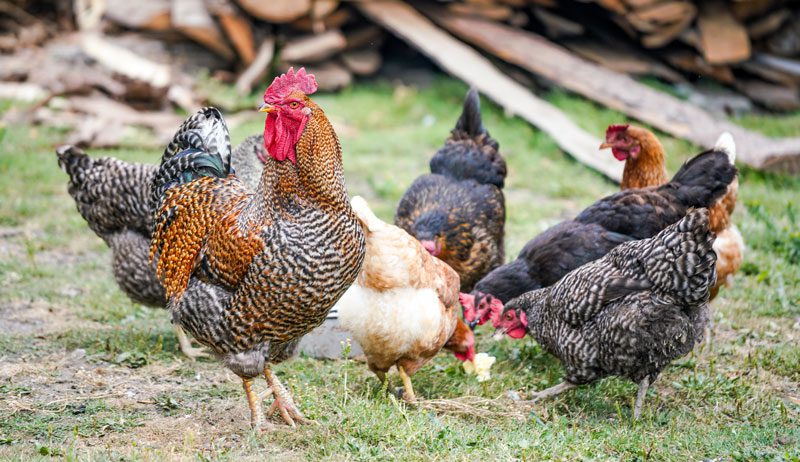Brussels sprouts are a nutritious vegetable that offer protein, fiber, vitamins, minerals and antioxidants. As such, many chicken owners wonder if chickens can eat Brussels sprouts as part of a balanced diet. This article takes an in-depth look at whether or not chickens can and should eat Brussels sprouts.
Yes, Chickens can safely eat Brussels sprouts as an occasional treat, providing essential nutrients like protein, fiber, vitamins, and minerals
Can Chickens Physically Eat Brussels Sprouts?
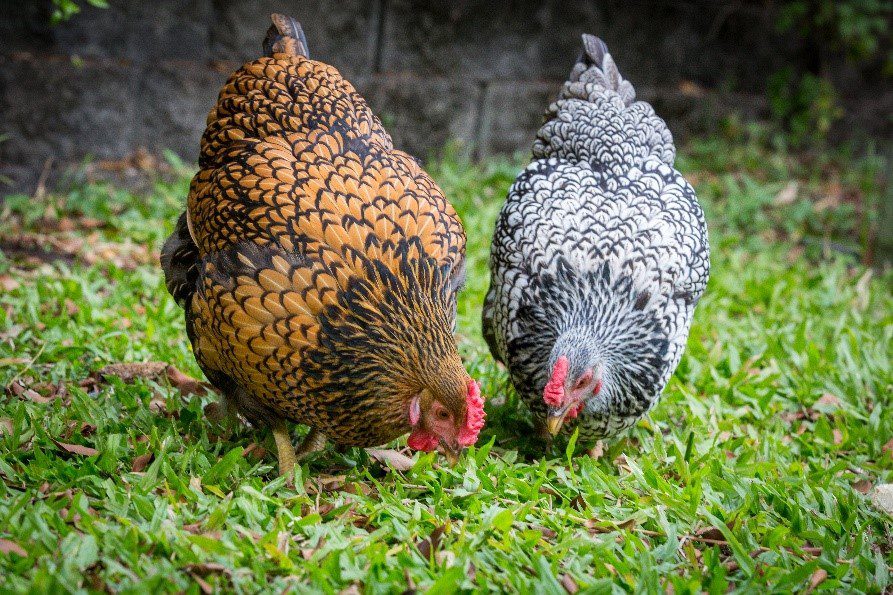
When it comes to chickens eating vegetables, it’s important to consider whether they can physically consume and digest the plant. So, can chickens physically eat Brussels sprouts?
The answer is yes. Chickens have beaks that are strong enough to break apart Brussels sprouts. Their digestive system is equipped to handle most fresh fruits and vegetables, including cruciferous veggies like Brussels sprouts, broccoli and cabbage.
However, there are some caveats. Larger, mature Brussels sprouts should be chopped for easier consumption. You’ll also want to introduce them slowly and moderately to avoid digestive upset. But in general, chickens are able to successfully eat Brussels sprouts from a physical standpoint.
Nutritional Value of Brussels Sprouts for Chickens
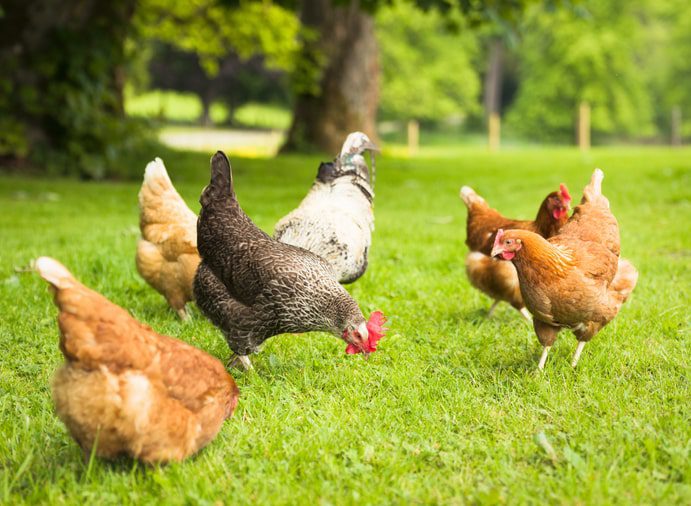
Now that we’ve established that chickens can physically eat Brussels sprouts, let’s look at the vegetable’s nutritional value and how it impacts chicken health.
Brussels sprouts offer many nutrients, including:
- Protein – Necessary for growth, muscle maintenance, feathering and egg production.
- Fiber – Promotes digestion and reduces risk of illness/disease.
- Vitamin C – Boosts immune system and combats stress; aids metabolic functions.
- Vitamin K – Essential for blood clotting and bone health.
- Iron – Prevents anemia and supports metabolic processes.
- Potassium – Required for enzyme function, fluid balance, nerve transmission.
- Manganese – Bone/tissue development, metabolism and antioxidant properties.
With this nutritional profile, Brussels sprouts make an excellent supplemental feed for backyard chickens when fed in moderation. The vitamins, minerals and antioxidants promote overall health by reducing disease risk and supporting vital systems.
The fiber and nutrient density also complement typical chicken feeds like pellets and grains. Brussels sprouts offer a change-up that diversifies the diet.
Potential Concerns
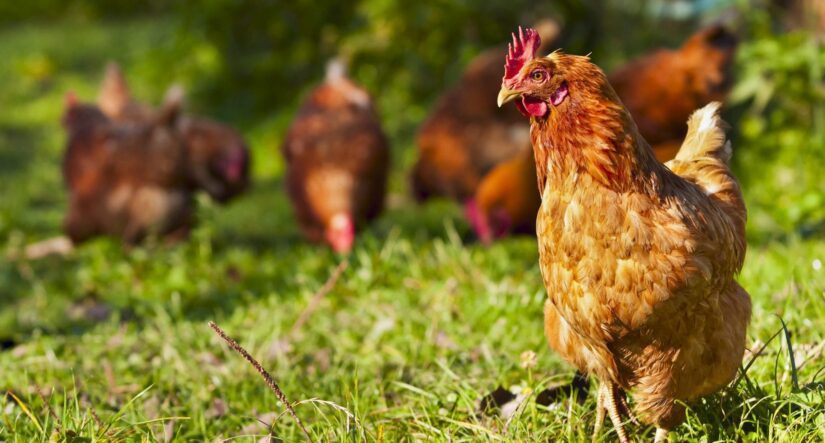
While Brussels sprouts can be safely enjoyed by chickens, there are some potential downsides to consider:
Gas and bloating – Like humans, chickens may experience excess gas or bloating when suddenly eating a large quantity of Brussels sprouts. Introduce them slowly.
Residue on eggs – Chickens that eat Brussels sprouts may produce eggs with a stronger taste, odor or yellowish appearance from the vegetable residues. This impacts personal preference.
Thyroid function – Very high amounts of cruciferous vegetables could potentially impact thyroid hormones long-term for chickens. Moderation is key.
These concerns mainly come from overfeeding Brussels sprouts or introducing them too quickly. Using them as an occasional treat avoids complications. Monitor chickens when offering a new treat to watch for signs of digestive upset or decreased appetite, which may indicate they need a break from that food.
How to Feed Brussels Sprouts Safely
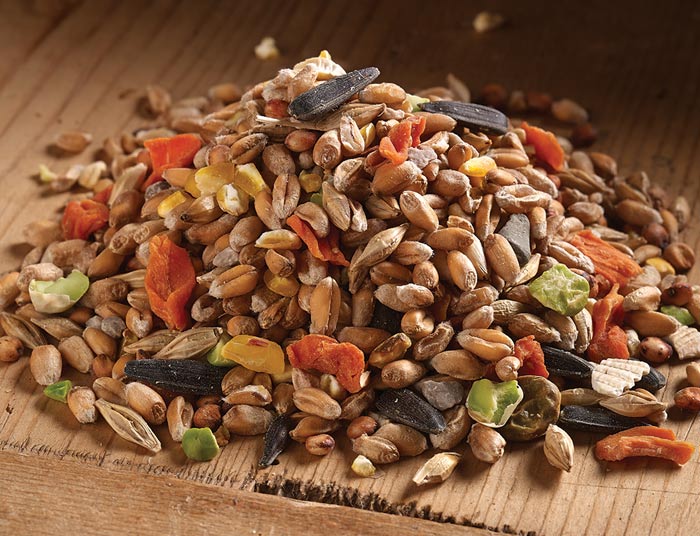
When feeding this nutritious veggie, follow these tips for health and safety:
- Chop completely – Cut Brussels sprouts into small, uniform pieces so chickens can comfortably eat them. Remove any rotted or bad spots.
- Clean and wash – Brussels sprouts should be freshly picked and thoroughly washed to remove dirt, bacteria, chemicals or mold that could cause illness.
- Feed in moderation – Brussels sprouts should be an occasional treat, not a daily vegetable. Around 1-2 sprouts per chicken every few days is a good guideline.
- Introduce slowly – When initially offering Brussels sprouts, only give chickens a taste the first day. Monitor them for positive reaction and increased appetite before gradually increasing portion sizes.
- Provide supplementation – Dry sprout leaves can lead to crop impaction. Always provide free access to insoluble grit to aid digestion. Continue offering a balanced main feed.
- Watch for reactions – Decreased appetite, lethargy, runny feces, respiratory issues or changes in appearance/behavior may indicate individual sensitivity. Discontinue Brussels sprouts if negative reactions occur.
Following these tips allows chickens to gain benefits from Brussels sprouts while avoiding potential stomach upset or other health impacts. Their reaction can depend partially on factors like breed, age, environment and overall diet. Paying close attention to each bird’s response provides the best care.
Health Benefits of Brussels Sprouts for Chickens
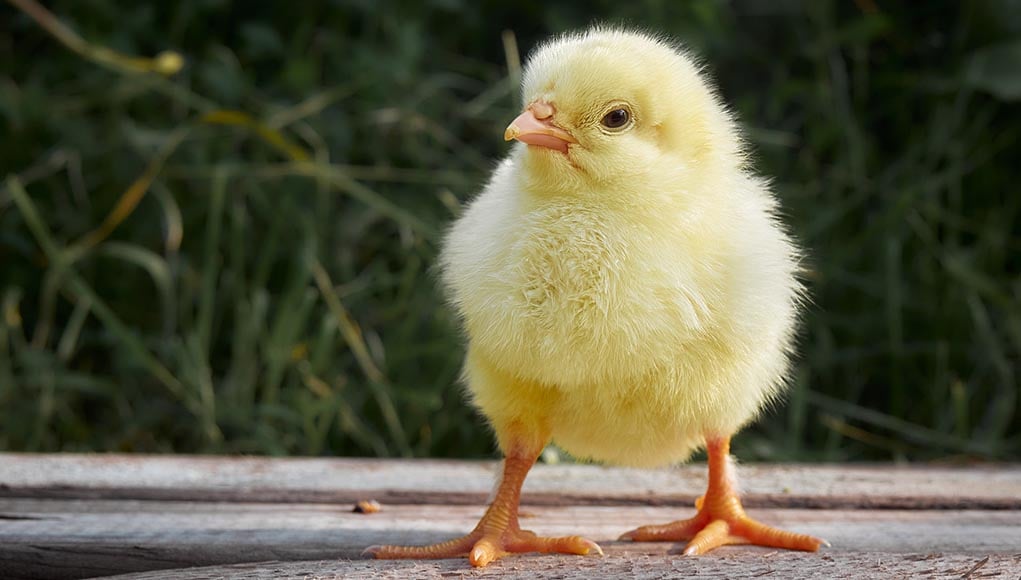
Offering Brussels sprouts in a safe, responsible way allows backyard chickens to reap several health advantages. Some top benefits include:
- Increased general wellness and immunity Multiple nutrients like vitamins C and K, potassium, antioxidants and folate within Brussels sprouts boost chicken’s immune response and ability to fight illness. Feed supports the cardiovascular system, blood health, metabolism, growth and more.
- Improved digestion The fiber, water content and nutrients in Brussels sprouts facilitate improved gastrointestinal function and health in chickens. This may increase feed conversion efficiency for better absorption of nutrients. Their antioxidant properties also reduce inflammation in the digestive organs.
- Reduced risk of infection Vitamin C, vitamin K and antioxidants help chicken’s bodies resist and recover from bacterial, viral or fungal infections. Feed supports mucous membrane and gut barrier wellness.
- Increased yolk coloration Xanthophylls are carotenoid pigments within Brussels sprouts that can lead to richer yellow or orange egg yolk colors. While this doesn’t change nutritional qualities, some chicken owners enjoy the vibrant yolk appearance.
- Higher fertility and hatching rates Nutrients like manganese, biotin, vitamin B1, copper and folate impact reproductive health in roosters and hens. They facilitate sperm quality, embryo development and successful hatching of fertile eggs.
These benefits show why Brussels sprouts deserve a spot as the occasional treat in any backyard coop. Chickens naturally enjoy tasting and pecking at new vegetables and fruits you provide. Keeping variety in their diet wards off boredom while allowing them to utilize nutrients from diverse sources.
Other Vegetables/Fruits Chickens Can Eat
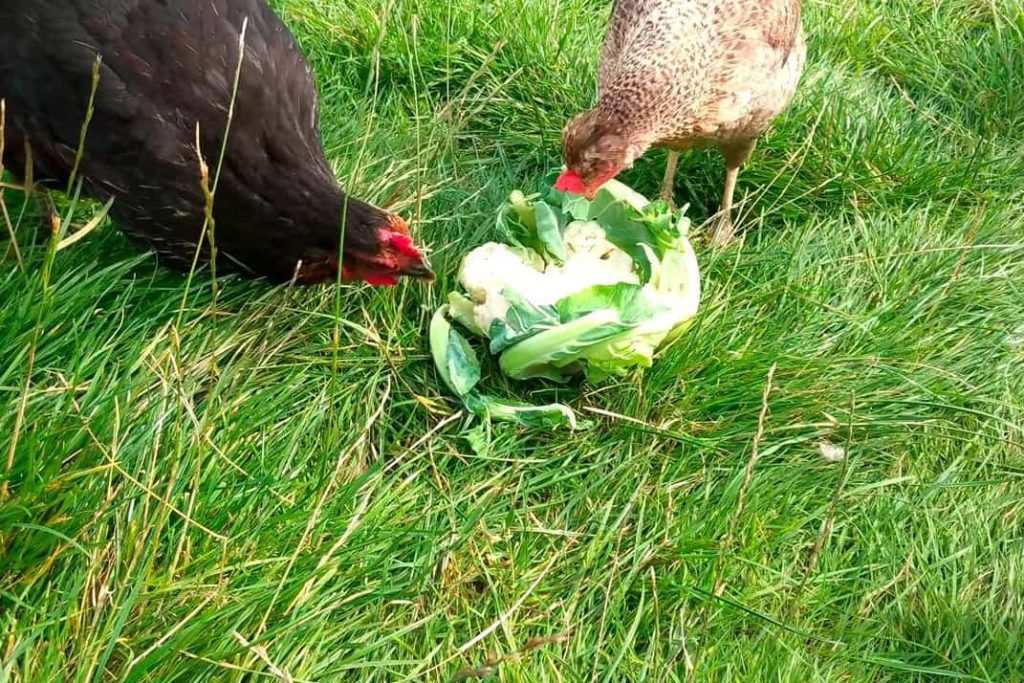
While this article has focused specifically on Brussels sprouts, chickens can enjoy a wide range of fresh produce in addition to their standard feed. Some other great options include:
- Leafy Greens – Spinach, kale, lettuce leaves, swiss chard, arugula. Offer vitamin C, A and calcium.
- Squash/Gourds – Zucchini, pumpkin, winter squash varieties. Contain beta carotene, vitamins C and E.
- Herbs – Parsley, basil, dill, cilantro oregano, thyme, rosemary. Aid digestion, immunity, respiratory health.
- Garden Vegetables – Carrots, turnips, peas, parsnips, radishes. Offer protein, potassium, fiber. Should be chopped.
- Berries – Strawberries, blackberries, blueberries. Provide antioxidants. Offer ripe and naturally sweet varieties.
- Melons – Cantaloupe, honeydew, watermelon. High moisture content keeps chickens hydrated.
- Fruits – Apple, banana, grapes, mango, papaya, peach. Offer nutrients, carbs, fiber, phytochemicals for health. Only feed ripe types.
As always, introduce new treats slowly and moderately while watching for potential negative reactions. Having a diverse “salad bar” allows chickens to receive a spectrum of vitamins, minerals, fiber and phytochemicals. This mimics their natural omnivorous diet.
Avoiding Potentially Harmful Foods
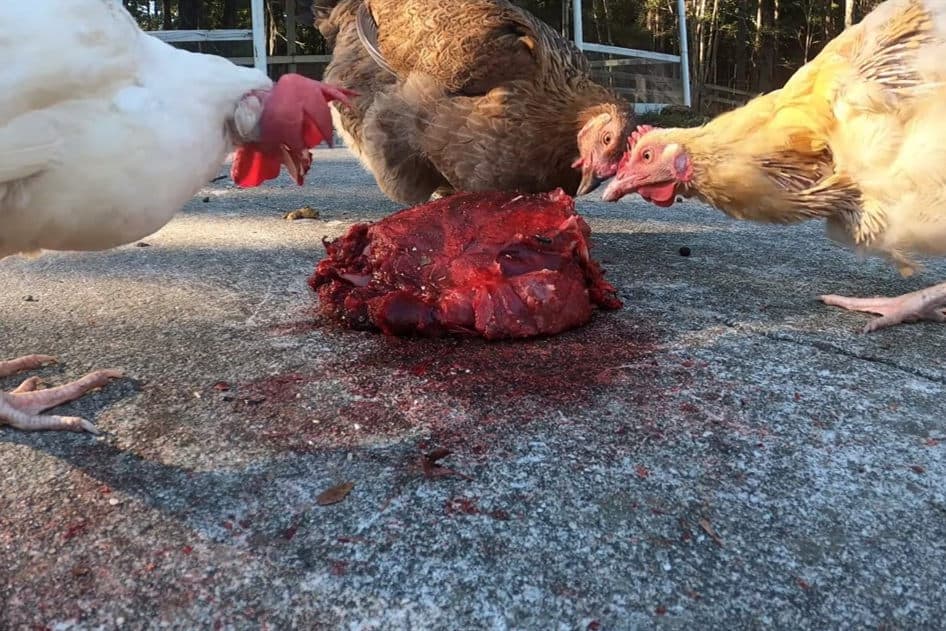
For Chickens It’s also crucial to know which foods could be dangerous for chickens and should be avoided. Some of these include:
- Avocado skin/pit – Contains persin toxin. Meat ok in small amounts.
- Dried beans or legumes – Raw varieties contain hemagglutinin lectin and other antinutrients that bind vitamins and minerals chickens need. Cooked is safer.
- Chocolate – Theobromine and caffeine can cause cardiac issues, nervous system disruption, diarrhea.
- Citrus – High acidity can cause crop burns. Some peel/seeds contain oils that produce limb paralysis if consumed in large amounts.
- Onions/garlic – Contain thiosulphates and sulfoxides that can cause Heinz body anemia and blood abnormalities in chickens long-term.
- Moldy/rotten foods – Can cause gut inflammation and produce dangerous mycotoxins.
- Salty foods – Leads to dehydration, kidney damage and electrolyte imbalances.
Additionally, fatty meats, eggs and dairy could contribute to obesity and related health issues if overfed. Sticking with produce, herbs, garden vegetables and approved grains/seeds avoids these risks.
Pros and Cons
Pros:
- High in nutrients like vitamins C and K, antioxidants, folate, fiber, potassium, manganese and iron. These support immune health, bone health, metabolism and egg development.
- Nutrients increase general health, resistance to illness/infection, digestive efficiency, fertility, hatching success rates and yolk color.
- Fiber aids digestion and gut health while the high water content helps keep chickens hydrated.
- Brussels sprouts provide variety from standard feed, ward off boredom and allow chickens to exhibit natural foraging behaviors.
- They can be a safe, nutritious treat for chickens when introduced properly and fed in moderation. Most chickens enjoy the taste and texture.
Cons:
- Too many Brussels sprouts could lead to gas, bloating and digestive upset especially if introducing them too quickly.
- Overfeeding may negatively impact egg taste or odor. Some people dislike the residual flavors.
- Very high amounts could potentially disrupt thyroid hormones for chickens long-term though moderate feeding has not shown this effect.
- Dried sprout leaves may present a choking/blockage risk. Insoluble grit should be supplemented to facilitate digestion.
- Allergic or negative reactions could occur in individual chickens including decreased appetite, diarrhea, lethargy or behavioral changes. Feed should be discontinued if these signs emerge.
Conclusion
In conclusion, Brussels sprouts represent an excellent supplemental feed that offers nutrients and variety. Chickens can safely and easily eat Brussels sprouts. Their digestive system allows them to consume and utilize nutrients.
When introducing Brussels sprouts, chop completely to aid consumption. Offer them fresh, washed and in moderation. Start with small quantities and gradually increase while assessing chicken’s reaction. Monitor for decreased appetite or other negative symptoms.
Health benefits include boosted immunity, fertility, egg yolk color, digestion and more. The nutrients support cardiovascular function, growth, nervous system health and disease resistance in chickens. Variety also wards off boredom with standard feed.
Similar vegetables like leafy greens, squash, carrots, berries and fresh herbs provide comparable advantages. It’s important to avoid potentially dangerous foods though like dried beans, chocolate or excess salt. Following these parameters allows Brussels sprouts to contribute to backyard chicken’s wellbeing.
FAQs
Consuming too many may cause loose droppings, intestinal gas, stomach bloating and discomfort. Significantly high quantities over time could impact thyroid function. Discontinue feeding Brussels sprouts if negative symptoms emerge and offer insoluble grit to help pass any residue.
In some cases, eggs may have more pungent flavor, odor or yellow yolk from vegetable components. Typically though, moderate Brussels sprouts feeding does not usually impact egg quality enough for most owners to notice. Adjust portions if eggs have an undesirable taste.
Baby chicks should not eat Brussels sprouts, which may be difficult for them to digest properly or contain too much vitamin K for young birds. Wait until pullets are 16+ weeks old with established digestive systems before introducing Brussels sprouts. Even then, feed sparingly at first.
Yes, Brussels sprouts provide many beneficial nutrients for broiler chickens like vitamins, minerals and carotenoids for their short lifespan. Feed chopped Brussels sprouts moderately along with high-protein feed for balanced nutrition. Monitor birds for diet reactions.
It may take some chickens time to recognize Brussels sprouts as edible feed if they’ve never been exposed before. Try chopping them up to sprinkling some scratch grain over the top portion to entice pecking. In most cases, chickens will sample and acquire the taste over time especially if they see flockmates enjoying them.


